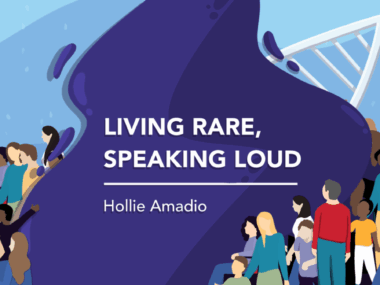Speaking up while we’re worn out isn’t always possible
Yes, we're inspired, but our symptoms can sometimes curtail our advocacy
Written by |

I want to be all in.
Every meeting, every bill, every story, every Capitol Hill Day, every chance to speak up for people like me — I want to show up for all of it. That fire inside me burns hot, and it pushes me to keep going even when I’m tired. But sometimes, no matter how badly I want to, my body just says no.
And when that happens, it feels like I’m failing.
Recently, I had to cancel a meeting with my state representative. It was a chance to talk about what people with chronic and rare diseases are really facing, and I had so much I wanted to say. But I was too unwell to attend. My body wouldn’t cooperate. And no matter how logical I tried to be about it, it still hit me hard.
I wanted to show up. I should’ve been there.
When the body doesn’t cooperate
But chronic illness, including my hereditary angioedema and multiple sclerosis, doesn’t care about timing or passion. It doesn’t care how hard I’ve worked to prepare or how long I’ve waited for the opportunity. It doesn’t care how heavy it feels to say, “I can’t.”
And that’s the part people don’t always see. Advocacy isn’t just about talking to lawmakers or showing up at conferences; it’s about the emotional weight we carry just trying to be present. It’s about feeling like your own body is standing in the way of your purpose.
Because when you live with a rare disease, you already fight to be seen. And when you miss a chance to speak up, it can feel like you’re disappearing all over again.
I try to remind myself I’m doing the best I can. And some days, that best means resting. Some days, it means missing a meeting so I don’t end up in the emergency room. Some days, it means crying over the gap between what I want to do and what I can do — and learning not to hate myself for it.
There’s real grief in that gap.
Doing what we can
But there’s also light. I’ve been grateful for the increase in virtual meetings. They make it possible to show up in a way that honors both my passion and my limitations. They allow me to advocate from bed if I need to. That kind of accessibility makes a world of difference — not just logistically, but emotionally. It’s a reminder that I can still make an impact, even if my route looks different than I’d hoped.
I have two virtual meetings this week to hopefully make up for what was missed.
I’ve also learned that I’m not alone in this feeling. So many advocates in the chronic illness and rare disease communities are pushing through similar struggles — navigating burnout, battling their own bodies, and still finding ways to raise their voices.
We want to change the world, and sometimes we can barely get out of bed.
But that doesn’t mean we’re failing. It means we’re human. It means we’re living the truth of the very system we’re trying to change. And maybe there’s something powerful in being honest about that, too.
So if you’re in that space right now — where your body is saying “not today” and your heart is breaking over it — I see you. You’re not alone. You’re not less of an advocate. You’re not letting anyone down. You’re doing something brave: honoring your body, even when it hurts.
And that? That’s advocacy, too.
Note: Angioedema News is strictly a news and information website about the disease. It does not provide medical advice, diagnosis, or treatment. This content is not intended to be a substitute for professional medical advice, diagnosis, or treatment. Always seek the advice of your physician or other qualified health provider with any questions you may have regarding a medical condition. Never disregard professional medical advice or delay in seeking it because of something you have read on this website. The opinions expressed in this column are not those of Angioedema News or its parent company, Bionews, and are intended to spark discussion about issues pertaining to angioedema.






Charlaine Martin
Hollie,
Thank you for your encouragement and strength to speak up. I was recently diagnosed with and chronic hives, while living with fibromyalgia and mixed connective tissue disease. I’ve learned to appreciate virtual meetings too. Keep speaking up, even from your bed. You’ve got support.
Hollie Amadio
Thank you for sharing that. I’m sorry you’re carrying so much, but I love that you’re still speaking up—proving advocacy absolutely counts in pajamas. I love that there are now ways to show up—whether it’s at the Capitol or under the covers. 💜 Virtual meetings are such a gift for moments like that, and it’s powerful to know we can still make an impact no matter where we are.